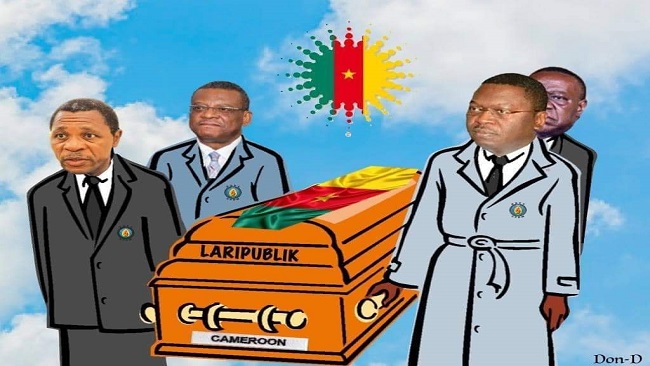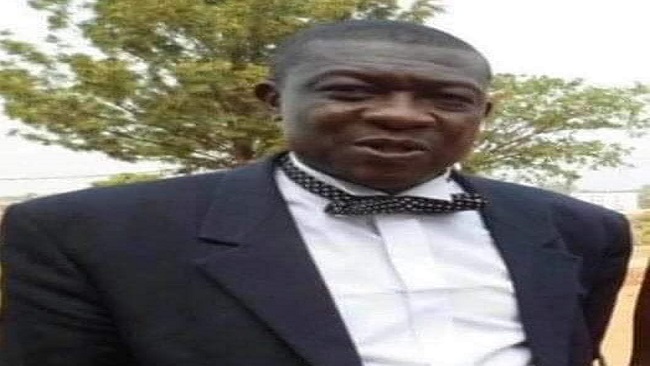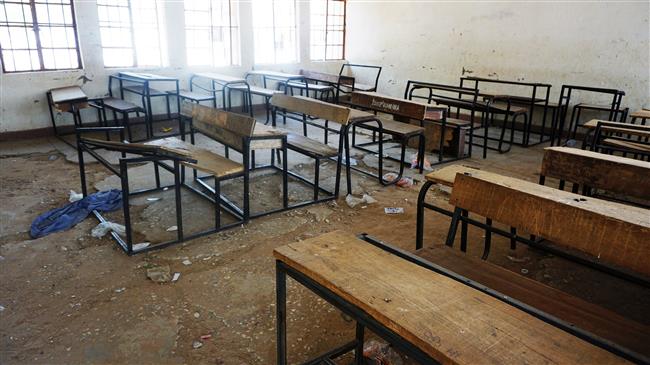9, October 2024
Paul Biya: Why Cameroonians want him to die! 0
For some time now, news about Paul Biya’s death has been trending and most discussions among the country’s Diaspora focus on Paul Biya, a man who has ruled his country for almost 42 years.
To gain a better understanding of how Cameroonians think about their president, the Cameroon Concord News Group North American editor, Alain Agbor Ebot interviewed some members of the country’s Diaspora who did not spare any punches. Read below!
Elad (Canada): We have been hearing of Mr. Biya’s death for some time now and this is not helping us. I am a Cameroonian who has been living in Canada for over two decades and I have been thinking of returning to my native Southwest region where I intend to undertake some agricultural projects to create jobs in the country, but my return is impossible for as long as Biya is in power. Lots of things have fallen apart in the country due to the lack of proper infrastructure. The country has not got good road infrastructure. The existing roads are not motorable. It is hard doing business in an environment which does not have good roads. There is also the issue of electricity. It is hard to operate in a country where there is no electricity. Cameroon needs an extreme makeover and this can only be engineered by a new regime.
Eyong (Germany): I have been in Germany for almost twenty-five years and I am sick and tired of living abroad. I want to return to my native Mamfe where I can have a more relaxed life. But returning now is almost impossible. Biya has to go for things to improve in Cameroon. His death will be a welcome relief as it may even cause separatist fighters to down their weapons. Biya is the main reason why many of us are living abroad. We love Cameroon but Biya and his gang have messed up the place. He should even resign. He hasn’t got the capacity to rule. I am happy that he hasn’t got much time to be on this planet. If he is not dead now, he will surely die in a few years’ time. He is a very wicked man. He wants to take down the country with him. This is indeed unfortunate!
Nfor Nji (America): That is the news we have been waiting for. Biya is better dead than alive. He is a massive liability to that country. I live in the United States, but I always think of returning to my native Cameroon. I am over 63 years and I would be happy to return to my native Bamenda to help with any reconstruction work. I am a professional engineer and I know a lot about post-war reconstruction. There are many other Cameroonians who hold that retirement will be better back home but how do we return there when nothing works. No good hospitals poorly regulated medical environment. Bad roads, lawlessness, insecurity and no electricity! Cameroon has been run aground by Mr. Biya who was expected to lead Cameroonians to the Promised Land. Biya is a sadist. He is happy inflicting pain on his people. Talk to many Cameroonians in the USA and you will find out that they are not happy living out of their country.
Folefack (America): When I heard of his death, I immediately went online to see if it was true. I even called family members back home who said they were waiting for confirmation. Biya is a millstone around our necks. He has killed Cameroon, triggering a wave of migration. Today, Cameroonians even migrate to places like the Philippines, Cambodia, Vietnam and other countries which are even economically worse than Cameroon. Our youths want to leave the country. They hold that salvation will never come from the ballot boxes. Biya’s rigging machinery is well-oiled. Biya is a monster. He does not care about the country. He only wants to die in power. We need a new government comprising dedicated and honest people. Cameroon has a huge Diaspora and there should be a ministry dedicated to the Diaspora. We want to return but what are we returning to. I am tired of living abroad. I left Cameroon in 1985. At that time, things were already falling apart but Biya and his men who are snake oil salesmen kept on telling Cameroonians that they would steer the ship to safer shores. None of that has happened. Today, they are instead making the waters murkier. Corruption, embezzlement, intimidation, violence and chaos have made Cameroon unattractive to investors. It is indeed unfortunate. We need a new leader who will come up with a brand new vision. Our towns are unplanned. Our people are starving. The food grown in rural areas cannot be brought to urban areas due to poor roads. We are indeed in a quagmire. My mind bleeds for that country.
This is a Cameroon Concord News Group Production



























13, October 2024
Cameroonians should focus more on post-Biya period instead of waiting for announcements of his death 0
The world has been focusing on Cameroon recently following news that Paul Biya, Cameroon’s second president, had died in Europe. The news, which was first broadcast on ABS, an American-based media outlet, sent shivers down the spines of many Cameroonians, with many asking questions about the country’s future. Mr. Biya has been in office for over four decades and during this time in power, people across the globe see him as a symbol of stability, though over the last seven years, Cameroon has been dealing with an insurgency in the country’s two English-speaking regions. News about his death caused Cameroon dollar bonds to take a nosedive, causing many investors to put off their investment plans in Cameroon. To again a better understanding of the situation in Cameroon, the Cameroon Concord News Group editor-in-chief, Soter Tarh Agbaw-Ebai, had to turn to Dr. Joachim Arrey of the Global Think Tank for Africa, an experienced and erudite political analyst, for an insightful analysis and he had the following to say.
Cameroon Concord News: Over the last few days, Cameroon has been in the news for all the wrong reasons following the announcement of the death of the country’s president. Many Cameroonians are concerned and the country’s dollar bonds have taking a nosedive, making it hard for Cameroon to borrow from global capital markets. What do you make of this situation?
Dr. Joachim Arrey: Thank you for inviting me to share my perspective on the unfortunate news which has been spreading online. Allow me to point out that it is wrong for anybody to announce the death of a man who is still living. Regardless of our political differences, it is immoral and unethical for anybody to spread such bad news. I have heard that many people around the world celebrated when they heard the news. Permit me to add that none of us has the power to decide when another person has to die. Death is not something we should even wish on our worst enemy. That said, I would like to caution that all humans are mortal including Mr. Biya who is almost 92 years old. When we get to such an age, we should celebrate but at the same time, it is only logical that we do the right things. At Mr. Biya’s age, he should be thinking of passing on the torch to the next generation of politicians. He has done his best, though many hold that his best is not good enough. Succession planning should be the focus of all Cameroonian political institutions. Nobody is immortal, including Mr. Biya and if he loves his country he should be thinking about quitting the political arena for a well-deserved retirement.
Mr. Biya has been the face of that country for a long time and his health and even death should be a call for concern for the entire country. When a public figure like him is not seen in public or is suspected of having health issues, it becomes a subject of discussion because much rides on his health or life. The unfortunate news about his death has affected the country’s economy and the country’s dollar bonds have taken a hit. Cameroon is now a high risk environment and many investors who are looking for where to invest their money will now walk away from Cameroon. Our country’s economy is already suffering and if it has to deal with other external shocks then we are in for tough times.
I would also like to point out that Cameroonians should stop blaming all the issues in Cameroon on Mr. Biya. Of course, he is the president and should be responsible for many things which have gone wrong, but it takes more than one person to destroy an entire country. As individuals, we must understand that there is what we call personal responsibility. If every Cameroonian decides to do the right thing regardless of the pain which comes with that, our country will not be falling apart as it is doing now. We have to change our atomic habits if we must see significant changes in our country. We must be the change we desire. As individuals, we have a lot to do if Cameroon must rise from its ashes like the proverbial phoenix. It is not Mr. Biya’s fault that we all urinate on our streets. It is not Mr. Biya’s fault that we all spend more time in bars instead of sitting at home with our children. It is not Mr. Biya’s fault that we cannot engage in community labour to make our neighborhoods clean. We need to address the little things which we have control over to reduce the decay that has become a millstone around our necks.
Cameroon Concord News: You talk about the next generation of politicians, who do you think will be part of the next generation of politicians when many young Cameroonians are pouring out of the country?
Dr. Joachim Arrey: For more than four decades, we have seen the same faces in our political landscape and many of those people are old and should yield the floor to young politicians who can drive the country into a new era. If Cameroonians in their immense majority think that Mr. Biya has overstayed his welcome in our political space, then most of those who are also there should be ready to leave. The president of the country’s senate is not a young person and most of his vice presidents clearly belong to the past. These people need to be replaced if Cameroon has to be part of the progressive political world. The new generation of politicians I am talking about should comprise courageous people who hold that Cameroon deserves better and they are determined to make their modest contribution to the building of a better Cameroon. In this effort, the Diaspora has a significant role to play. I hold that people who are nearing retirement in Western countries can take off some time to run as members of parliament, mayors or senators in Cameroon to bring in fresh ideas into the system. It does not only suffice to identify the problems. The Diaspora must bring its experience and knowledge to bear. At 60, there is no reason to be scared of returning home. If Cameroon is broken as we all say, then we all must roll up our sleeves to shore up any development efforts in our country. We have to do it. Nobody will do it for us. If the citizens of the countries in which many of us send our children to had escaped from their countries, we would not have had a place to send our children. We must seek to rebuild Cameroon. The onus is on all of us. Like many Cameroonians, I have lived out for almost three decades and I think I can bring something to the table in Cameroon. I want to help and I think the best place to start is at the grassroots.
Cameroon Concord News: Are you saying you will soon be part of the country’s political landscape?
Dr. Joachim Arrey: That is on the table. I have extensive political experience and I have a deep understanding of some of those issues which are hurting our people. Like I have always said, I have come to the ripe age where I can make some sacrifices for my country. Like many Cameroonians I have talked to, I hold that if meaningful change has to take place in Cameroon, young people with innovative ideas must be part of the political landscape. I am staring down the barrel of retirement and I have nothing to lose if I serve my country for a few years. I strongly believe that I can influence things at the grassroots level and I am willing to even settle in my native Ossing just to make a difference. Our people need to see a different model and I am willing to deliver that model to them after having lived in many parts of the world.
Cameroon Concord News: Don’t you think running as a senator or an MP will be the right place for you to start?
Dr. Joachim Arrey: Like I have said, everything is still on the table. If my people trust me, they will place me where they think I should be. I have a good relationship with the people of Manyu and I have always been there for them. I will never abandon them regardless of the situation. I will continue to send many kids to school, grant scholarships to those who want to further their studies and support development efforts in the Division. I have already endeared myself to my people. For over 25 years, I have placed the people of Manyu at the centre of my actions and I think if they give me the opportunity, I will like to do more for the Division. Manyu needs erudite, courageous and development-oriented politicians. They need politicians who will point them in the right direction. I want to point the people of Manyu in the right direction. I have learned and I am willing to learn from those who have been in that landscape before me. Life is a journey of learning and I have undertaken that journey. Manyu needs to change. I have a massive dream for my people. It hurts when I see them crying. There is a better way of doing things and I am prepared to take them down that beautiful route. There is no reason for any Cameroonian to die in the desert or on the high seas. We need to breathe faith in our youths. We need to orientate them so that they can see the opportunities in their natural environment. We can build their capacities at home and let them operate at the international level. Currently, I am moulding some Manyu youths and directing them on how to get jobs at the international level. I would like to extend that program to all sons and daughters of Manyu who have the right certificates. I want to open their eyes to the realities of their time. I want to teach them how to make money and keep it. I want to let them understand that no initiative succeeds without discipline. I do not need to be a senator or a Member of Parliament to help my people but if the opportunity is there and the people trust me, I will use it to deliver more scholarships and educate many youths. There is still time to reflect on senatorial, mayoral and parliamentary elections. I can serve my people in any capacity and I have already triggered that process by organizing online clinics for those who have the right certificates.
Cameroon Concord News: Any last word?
Dr. Joachim Arrey: Thank you Mr. Chairman for giving me the opportunity to share my perspective. I would like to urge Cameroonians to focus more on the post-Biya period instead of waiting for announcements of his death. None of us can determine when someone will die but because of his age and declining health, we should be working towards avoiding any confusion or bloodshed in our country when and if Mr. Biya quits power. We do not need to kill each other. We need to correct the errors of the past so that our country can be the envy of the continent. The country’s political opposition should be calling for that. Opposition political parties should be working together to ensure that the transition will be smooth whenever that time comes. Once more, thank you for your confidence in my ability to provide great political analysis.
Cameroon Concord News: Thank you, Dr. Joachim Arrey, for you time.